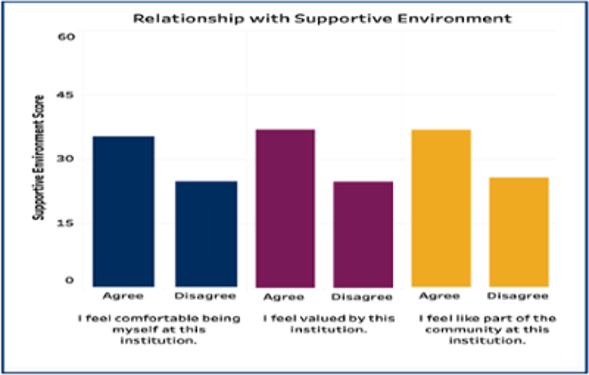In 2020, NSSE added a trio of items to assess students' sense of belonging:
To what extent do you agree or disagree with the following statements?
a. I feel comfortable being myself at this institution.
b. I feel valued by this institution.
c. I feel like part of the community at this institution.
(Response options: Strongly agree, Agree, Disagree, Strongly disagree)
Sense of belonging is an important addition to the assessment of student engagement given its demonstrated relationship to student persistence, engagement, and development.
In this guide, we highlight approaches for institutions to examine their data about sense of belonging and, in particular, variation in belongingness by student background, and to consider how results can inform institutional action for improvement.



 Are you ready to continue digging into your NSSE sense of belonging results? We encourage you to view our December 2020 webinar,
Are you ready to continue digging into your NSSE sense of belonging results? We encourage you to view our December 2020 webinar, 



